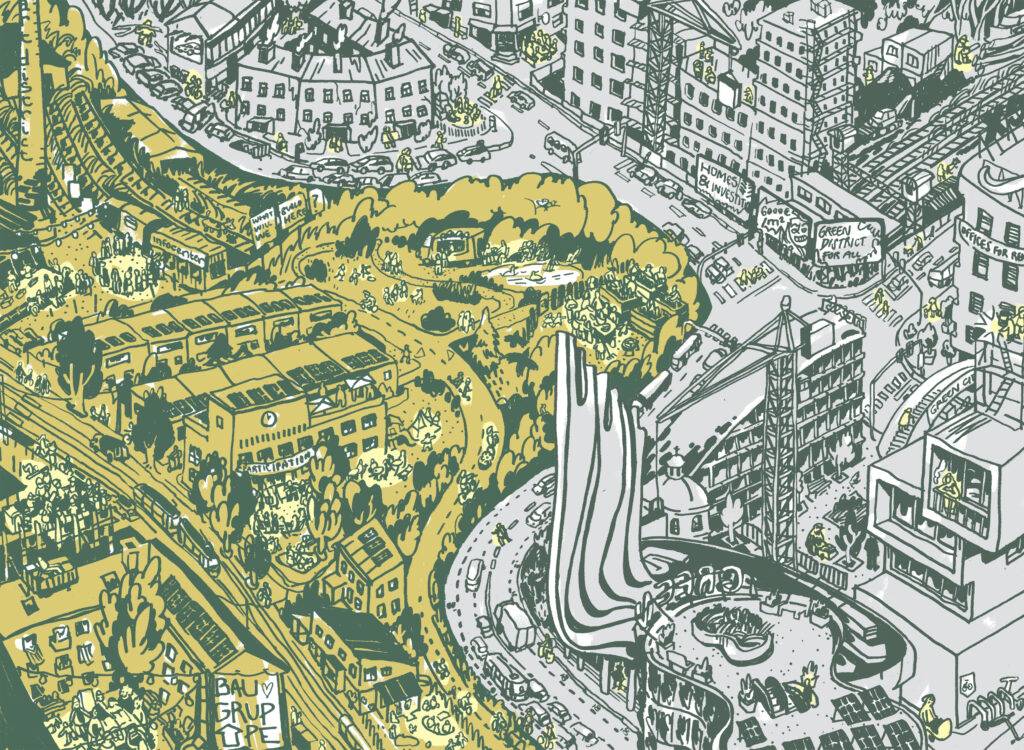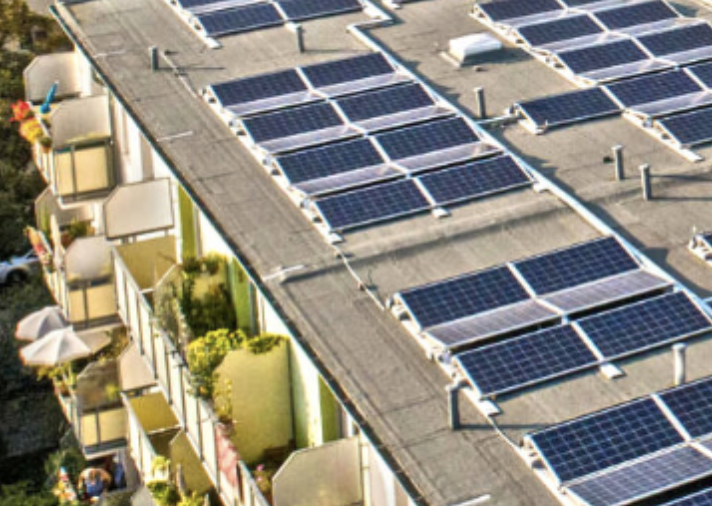
As part of the global IHRB project “Building for Today and the Future“, local researchers in eight cities are studying how climate action in the built environment impacts human rights, and identifying examples of built environment socio-economic innovation.
Below are the examples of innovation in Prague. Visit the Building Transformation StoryMap for innovation in multiple countries.
The Prague-based research was conducted by Michaela Pixova; the full research outputs are here.
Prague Renewable Energy Community
As part of Prague’s climate plan, “Pražské společenství obnovitelné energie” was established to build a shared renewable energy network for Prague residents. Its goal is to install photovoltaic systems on 23,000 suitable building roofs – primarily residential buildings, family houses and public buildings. The initiative helps its members with applying for funds for photovoltaic installation and consequently provides maintenance services.
This is an example of the renewable energy communities that are being established in multiple parts of Europe.

Prague Development Company
Pražská developerská společnost is a municipality-funded organisation of the City of Prague. It was established in 2020 to develop 6,000–8,000 public apartments on 400,000 m² of municipal land by 2030. Public apartments will be financially accessible. The company is aiming to build buildings according to the highest environmental standards. Its principles are:
- Human scale of new projects
- Urban and architectural quality
- Compatibility with the given location
- Economic efficiency during the projects’ life cycle
- Focus on quality while being mindful of public funds spending
Shared houses
Sdílené domy (“Shared Houses) is a group that is planning to create a network of homes providing residents affordable and community‑based accommodation, in the form of collective ownership through a cooperative. They are taking inspiration from other collective ownership models in Europe.
Shared Houses say:
“We have decided to name our pilot project “First Swallow”. Its functioning should prove that the proposed system is feasible and viable in our legal and social conditions. We believe that one swallow does make a summer and as soon as the first project succeeds, other collectives will join us.”
